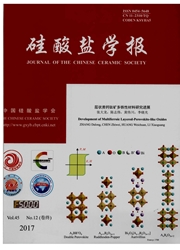

 中文摘要:
中文摘要:
通过煅烧碱金属硫酸盐来模拟水泥熟料中的原生碱金属硫酸盐对水泥早期凝结行为的影响,根据ASTM C451水硬性水泥早凝测试方法研究不同碱金属硫酸盐对水泥早期凝结性能的影响,建立了不同硫酸钾、硫酸钠与石膏比例下水泥正常凝结、假凝和速凝的区域范围,并采用水化微量热仪、综合热分析仪和X射线衍射仪对水泥水化热及水化产物进行分析。结果表明:当硫酸钾或者硫酸钠含量高于总硫酸盐含量的75%以上时水泥会出现早凝,硫酸钾或硫酸钠钾会使水泥会发生假凝;硫酸钠会使水泥出现速凝,外掺更多石膏才能缓解这一不利影响。熟料中硫酸钾、硫酸钠钾会与石膏反应形成钾石膏引起假凝。可根据熟料中碱金属硫酸盐含量对水泥早期凝结行为进行预判,也可以通过调整碱金属硫酸盐和石膏的比例来调控水泥的早期凝结行为。
 英文摘要:
英文摘要:
Alkali sulfates in clinker have an impact on the early setting behavior and fluidity of Portland cement. The calcined alkali sulfate as well as analytically pure alkali sulfate were introduced to investigate the effect on fluidity of cement paste. The premature stiffening of cement paste was measured by the ASTM C451 standard test method for the early stiffening of hydraulic cement (i.e., the paste method). There is a difference between the fluidities of cement pastes doped with calcined alkali sulfate and analytically pure alkali sulfate. The relationship between alkali sulfates and premature stiffening of Portland cement was determined. The percent final penetration of Portland cement was tested by the ASTM C451 standard method, obtaining the normal setting area, flash setting area and false setting area. The cement compositions are manipulated to cause the premature stiffening (i.e., flash set and false set). Based on the results by X-ray diffraction and differential thermogravimetry, the syngenite formation is due to the premature stiffening, and the AFm formation is due to the flash set behavior.
 同期刊论文项目
同期刊论文项目
 同项目期刊论文
同项目期刊论文
 期刊信息
期刊信息
